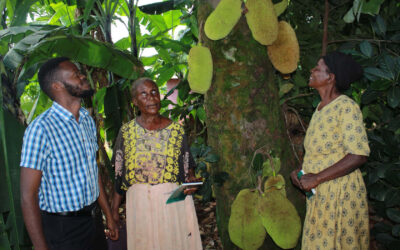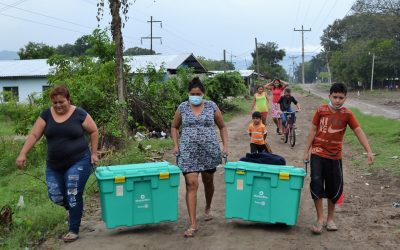A five-strong Rotary delegation led by Judith Diment MBE, Dean of Rotary Representatives to the United Nations, were in Glasgow for the UN’s Climate Change Conference, where they were joined last week by Rotary International President, Shekhar Mehta.
He headed up a Commonwealth seminar looking at mangroves and he had pledged to push forward with developing projects in eight countries over the coming 12 months.
Keith Madden is the Area of Focus Manager for the Environment, based at Rotary International headquarters in Evanston.
Here he reflects on Rotary’s role at COP26 and the part the organisation has to play in protecting the environment.
Not only has COVID-19 disrupted societies and economies, but for a short time it threatened to derail progress at some of the year’s most important environmental diplomatic events.”
“Rotary’s timely engagement with the UN climate change talks is important for showcasing Rotary’s global capacity to collaborate on beneficial climate initiatives and also for demonstrating how Rotary, in alliance with other civil society organisations, will be key partners in accelerating momentum in the right directions.
“The UN Framework Convention’s Conference of the Parties 26 (COP26) in the UK was originally scheduled for 2020.
“So, not only has COVID-19 disrupted societies and economies, but for a short time, it threatened to derail progress at some of the year’s most important environmental diplomatic events, among them the UNFCCC COP.
“In these new circumstances that forced changes to the negotiations calendar, UN climate Executive Secretary, Patricia Espinosa, deftly put on a positive spin, saying that: ‘This is a chance for nations to recover better, to include the most vulnerable in those plans, and a chance to shape the 21st-century economy in ways that are clean, green, healthy, just, safe, and more resilient.’
“For such high-stakes international talks, replacing face-to-face interaction with some hybrid elements has, and still does, pose complications for the conference to function as it used to, especially in terms of having equal representation present from all stakeholders.
“It is in this context that Rotary has been ramping up the new Environment Area of Focus.
Rotary members are now well-positioned to work on climate change from an ecological, social, and humanitarian perspective.”
“Nature, water, and the planet cannot afford to take a back seat as institutions take stock of the impacts of the pandemic, and so we at Rotary have been eagerly moving forward with a focus on Rotarians getting involved in actions that respond to the most pressing environmental issues and most obvious gaps – first at a local level, and when circumstances permit, leveraging the power of Rotary globally as well.
“Our Global Grants and District Grants programmes through The Rotary Foundation reflect this approach as well.
“That Rotary was able to participate in the COP this year was a great opportunity.
“The environment Area of Focus builds on years of community-based environmental problem solving by Rotarians, but now with new project funding and opportunities related to climate, nature, and sustainability.
“Rotary members are now well-positioned to work on climate change from an ecological, social, and humanitarian perspective, with an ability to motivate action on nature-based climate solutions from local volunteer groups to decision-makers.”










